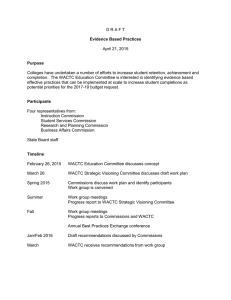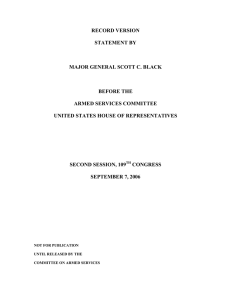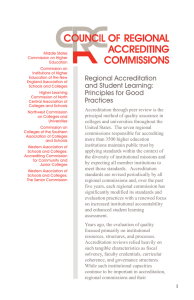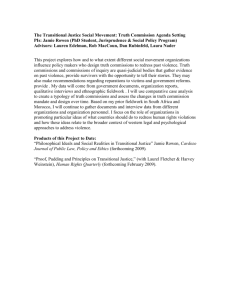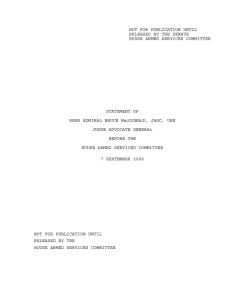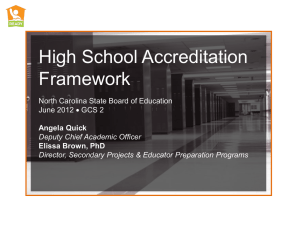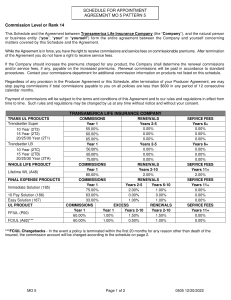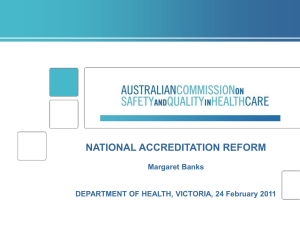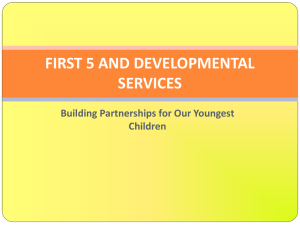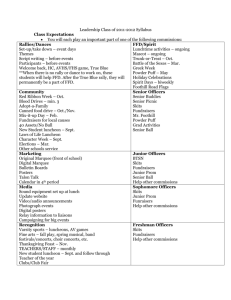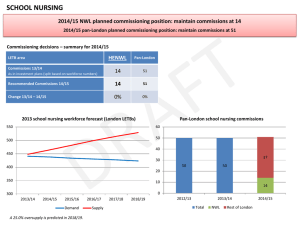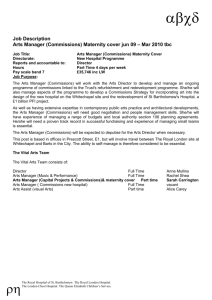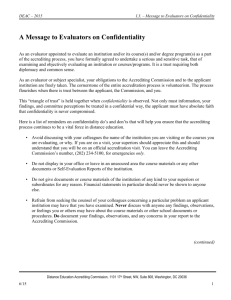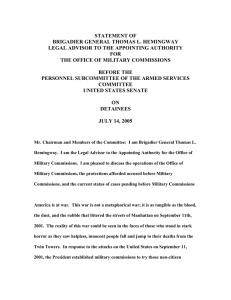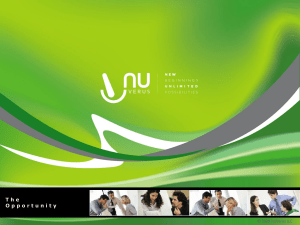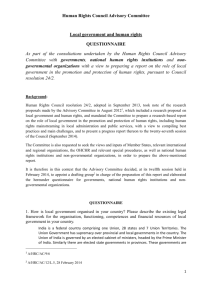Guidelines: Principles for Good Practices: Regional Accrediting
advertisement
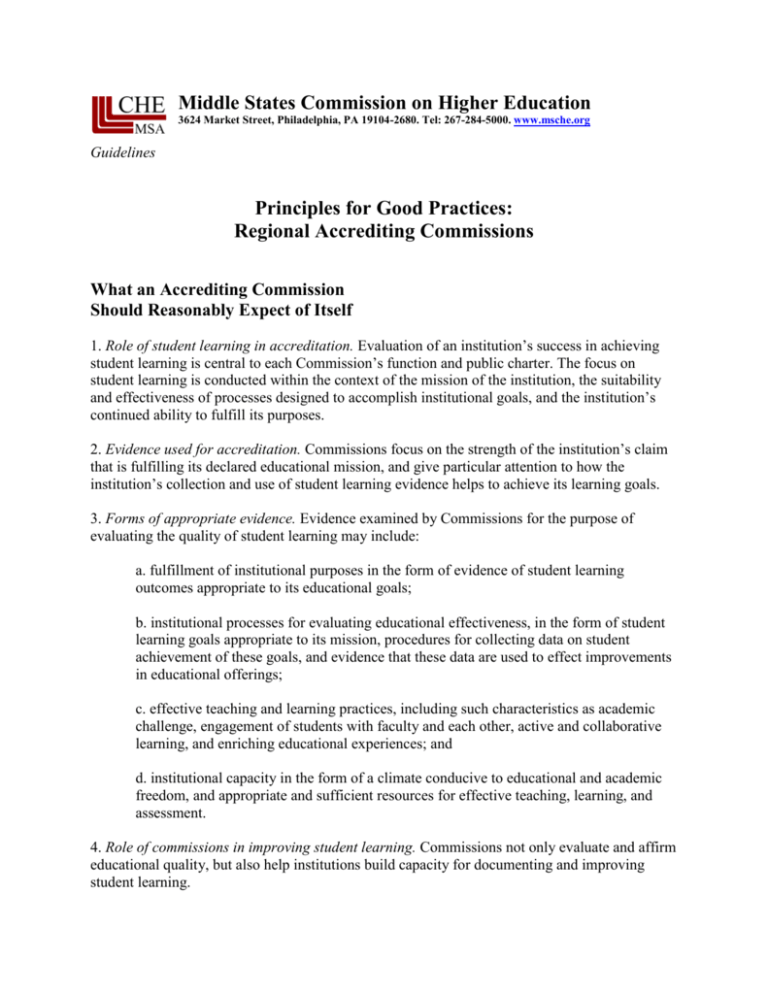
Middle States Commission on Higher Education 3624 Market Street, Philadelphia, PA 19104-2680. Tel: 267-284-5000. www.msche.org Guidelines Principles for Good Practices: Regional Accrediting Commissions What an Accrediting Commission Should Reasonably Expect of Itself 1. Role of student learning in accreditation. Evaluation of an institution’s success in achieving student learning is central to each Commission’s function and public charter. The focus on student learning is conducted within the context of the mission of the institution, the suitability and effectiveness of processes designed to accomplish institutional goals, and the institution’s continued ability to fulfill its purposes. 2. Evidence used for accreditation. Commissions focus on the strength of the institution’s claim that is fulfilling its declared educational mission, and give particular attention to how the institution’s collection and use of student learning evidence helps to achieve its learning goals. 3. Forms of appropriate evidence. Evidence examined by Commissions for the purpose of evaluating the quality of student learning may include: a. fulfillment of institutional purposes in the form of evidence of student learning outcomes appropriate to its educational goals; b. institutional processes for evaluating educational effectiveness, in the form of student learning goals appropriate to its mission, procedures for collecting data on student achievement of these goals, and evidence that these data are used to effect improvements in educational offerings; c. effective teaching and learning practices, including such characteristics as academic challenge, engagement of students with faculty and each other, active and collaborative learning, and enriching educational experiences; and d. institutional capacity in the form of a climate conducive to educational and academic freedom, and appropriate and sufficient resources for effective teaching, learning, and assessment. 4. Role of commissions in improving student learning. Commissions not only evaluate and affirm educational quality, but also help institutions build capacity for documenting and improving student learning. Guidelines: Principles for Good Practices: Regional Accrediting Commissions 2 5. Training. Evaluation teams, commissions, and staff are trained in skills needed for effective accreditation practice, and operate within the spirit expressed by these principles. What an Accrediting Commission Should Reasonably Expect of an Institution 1. Role of student learning in accreditation. Educational quality is one of the core purposes of the institution, and the institution defines quality by how well it fulfills its declared learning mission. 2. Documentation of student learning. The institution demonstrates that student learning is appropriate for the certificate or degree awarded and is consistent with the institution’s own standards of academic performance. The institution accomplishes this by: a. setting clear learning goals which speak to both content and level of attainment; b. collecting evidence of goal attainment using appropriate assessment tools; c. applying collective judgment as to the meaning and utility of the evidence; and d. using this evidence to effect improvements in its programs. 3. Compilation of evidence. Evidence of student learning is derived from multiple sources, such as courses, curricula, and co-curricular programming, and includes effects of both intentional and unintentional learning experiences. Evidence collected from these sources is complementary and portrays the impact on the student of the institution as a whole. 4. Stakeholder involvement. The collection, interpretation, and use of student learning evidence is a collective endeavor, and is not viewed as the sole responsibility of a single office or position. Those in the institution with a stake in decisions of educational quality participate in the process. 5. Capacity building. The institution uses broad participation in reflecting about student learning outcomes as a means of building a commitment to educational improvement. Adopted by the Council of Regional Accrediting Commissions, 2003 Version: 0904
